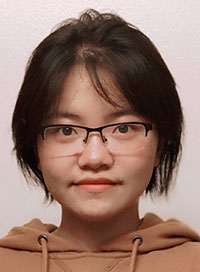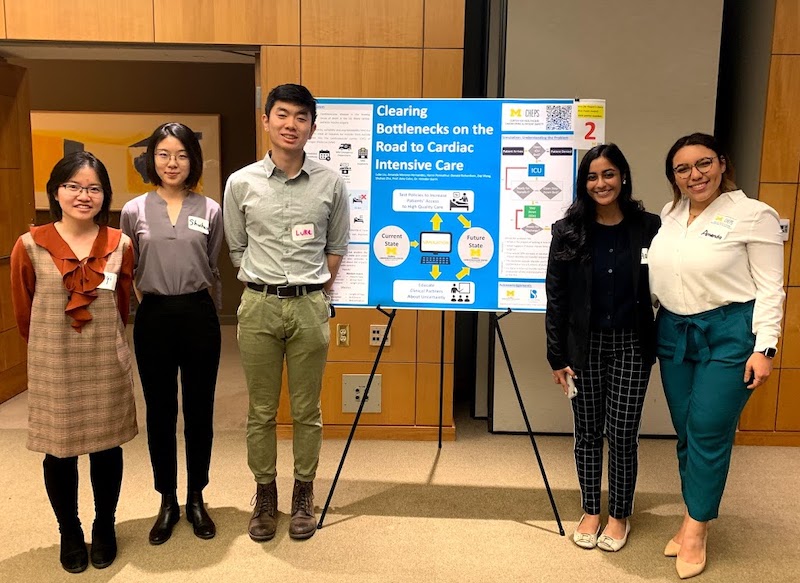
Hi! My name is Ziqi and I am going into my second year of the Healthcare Engineering and Patient Safety (HEPS) concentration in the Industrial and Operations Engineering (IOE) master’s program. I’ve been working at CHEPS since I started my master’s study here, almost one year now. During my time at CHEPS, I have worked on a simulation project with modeling and data analytics work. I have met so many amazing and talented people here. Being a member of the CHEPS family is the most meaningful and wonderful experience I have had at Michigan.
Before starting at CHEPS, I majored in Industrial Engineering in my undergrad and had some project experience in healthcare engineering, like how to optimize the medical treatment process to minimize the total waiting time of patients in the hospital. I felt like industrial engineering knowledge, especially systematic thinking, data analysis, and simulation could make a great difference in the healthcare system. More efficient processes and scheduling are saving patients’ lives. Therefore, I applied for the HEPS masters program without hesitation. On my first day at CHEPS, Amy and Liz showed me around the work area of CHEPS and gave me a brief introduction to the AD ICU project that I would join. I still remember how welcoming they were to the new students and how excited I was to join the CHEPS family.
The project that I have spent the most time on is the AD ICU project. For this project, we built a discrete event simulation model of the flow of aortic dissection patients arriving into ICU and then being moved into the downstream unit (Step-Down Unit, SD), specifically in the Cardiovascular Center (CVC) at Michigan Medicine. We also considered the patients whose health deteriorated to the point they needed to return to the ICU from SD. By collecting relevant metrics, like patient denial rate and utilization of ICU and SD, we evaluated the system performance with different input to understand how sources of variability in patients can influence the outcome. And the model can be utilized to develop policies for determining whether to accept patient transfer requests, improve the capacity management strategy of CVC, and when to postpone elective surgical procedures to improve available ICU capacity for potential future urgent care needs.

When I first joined the AD ICU team, it was a little difficult for me to understand what was going on in the project since the project has made some progress before I joined and I was not familiar with some medical terminologies and how the healthcare system works in the United States. Luckily, I’ve met many helpful and nice teammates to describe the project to me very carefully and answer my questions.
It is exciting to see how engineering can help with hospital management, especially in the ICU, a unit that has a high cost, high quality requirements, and vital importance for critically ill patients. Especially with the current pandemic of COVID-19, it is important to utilize limited medical resources to save more patients’ lives. I am always excited to hear from Amy that what we did is helpful for the hospital.
This summer is quite different from what it used to be due to COVID-19. Although it is my first summer in CHEPS, I still know that I missed many outside activities and parties that used to happen in summer. We stay at home for work and meet virtually, which makes me miss the feeling of talking to someone in person. But CHEPS is always a community where I can feel a sense of belonging no matter what: we have had an amazing online talent show, we study a MOOC (online course) about the healthcare system together, and we have lunch & learns with alumni to learn more about the healthcare industry. We also have student presentations every week to learn from other project teams within CHEPS.
Although I am not sure where I will go after graduation, I hope to work in the hospital or a healthcare engineering company as a data analyst or consultant. I am so grateful that my experience in CHEPS has solidified my desire to work in the healthcare industry and use engineering knowledge to improve health system performance and patient care.
